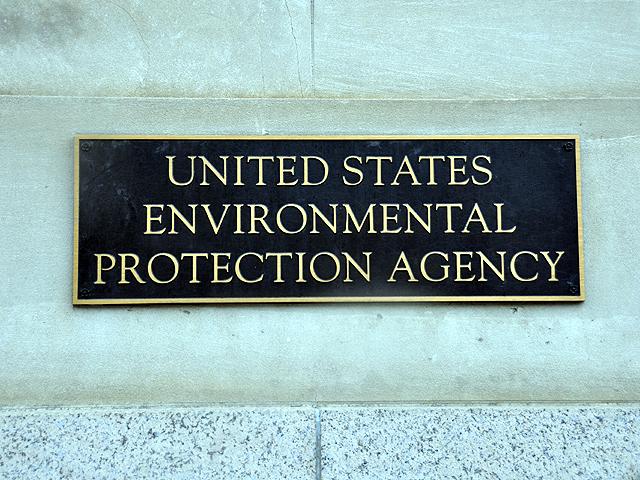EPA Grants 3 Refinery RFS Exemptions
Agency Makes Decision on Evening Before New Administration Takes Over
OMAHA (DTN) -- The Trump administration granted three pending requests for small-refinery exemptions to the Renewable Fuel Standard for 2018 and 2019 on Tuesday evening.
According to EPA's RFS dashboard, the agency did not decide on the remaining 30 requests for 2019. In addition, EPA granted one additional request for 2018 and increased the total number of exemption requests from 14 to 15 for 2020.
The Renewable Fuels Association said in a statement Tuesday evening the group will challenge EPA's decision.
"This midnight-hour attempt by the Trump administration to damage the Renewable Fuel Standard and sabotage the ethanol industry's recovery from the COVID pandemic simply cannot be allowed to prevail," RFA President and CEO Geoff Cooper said.
"With just hours remaining in his shameful term as EPA administrator, Andrew Wheeler couldn't stop himself from doling out a few more Clean Air Act compliance exemptions to his well-connected friends," Cooper said. "But the fact remains that today's action by EPA is completely without legal merit. It flouts both the statute and recent court decisions that clearly limit EPA's authority and ability to grant these exemptions. And while this action comes as one last sucker punch from the Trump administration, we are confident it will be a hollow victory for the politically connected oil companies receiving today's waivers, as the new Biden administration will most certainly act quickly to restore the volumes erased by these waivers."
RFA said the two 2019 exemptions will amount to another 150 million gallons of lost renewable fuel demand. The 2018 exemption is expected to result in a loss of 110 million gallons of biofuel demand and was previously denied by the agency.
A federal appeals court ruled last year that the agency has illegally granted exemptions to three refiners in 2016. An appeal by refiners in that case will be heard by the Supreme Court.
P[L1] D[0x0] M[300x250] OOP[F] ADUNIT[] T[]
The latest action ends what has been a tumultuous relationship between Trump and the ethanol industry. In total, the Trump EPA granted 88 exemptions since 2016. The EPA still has 65 pending requests across multiple years.
Growth Energy CEO Emily Skor lambasted the EPA.
"Farm families and biofuel workers across the country have worked tirelessly to make a living over the past few months despite a global pandemic," Skor said in a statement.
"And yet, the Trump administration's SRE abuse has piled on to the uncertainty and difficulty that rural Americans are facing every day. Given President-elect (Joe) Biden's commitments on the campaign trail, we're confident his incoming team will swiftly work to reverse the damage these oil handouts have done to rural America by this midnight maneuvering."
National Biodiesel Board Vice President for Federal Affairs Kurt Kovarik said the waivers granted will affect the biodiesel industry.
"EPA's last-minute gifts to oil refiners come at the direct expense of biodiesel and renewable diesel producers," he said.
"This disappointing action further undermines the integrity of the Renewable Fuel Standard program by destroying demand for additional gallons of biofuel."
NBB estimates the exemptions will reduce demand for biodiesel by about 35.7 million gallons.
Ethanol industry officials were encouraged late last week when the agency announced a handful of proposed rules.
A statement in a new EPA proposed rule sent a signal EPA may not act on any new small-refinery exemptions. EPA stated, "Due to the ongoing litigation, we take no position on the availability of SREs for the 2019 compliance year."
Last week, members of Congress and the biofuels industry were scrambling over EPA Administrator Andrew Wheeler potentially reversing course and approving more renewable fuel exemptions for small petroleum refiners in the last days of the Trump administration.
EPA's new rule proposal published in the Federal Register would grant refiners more flexibility and an extension to comply with the RFS for 2019 and 2020.
Under the proposal, refineries producing less than 75,000 barrels of oil per day would have until Nov. 30, 2021, to meet 2019 RFS blend requirements, and until Jan. 31, 2022, to meet the 2020 RFS obligations. EPA cited the economic struggles of refineries as a result of COVID-19 for the reason for the extensions.
In its proposed rule, EPA pointed to the benefits to refiners from delaying their blend requirements for 2019 and 2020. But the extension proposal does not mention any impacts those delays could have on ethanol producers or demand for feedstocks such as corn or soybean.
Todd Neeley can be reached at todd.neeley@dtn.com
Follow him on Twitter @toddneeleyDTN
(c) Copyright 2021 DTN, LLC. All rights reserved.



